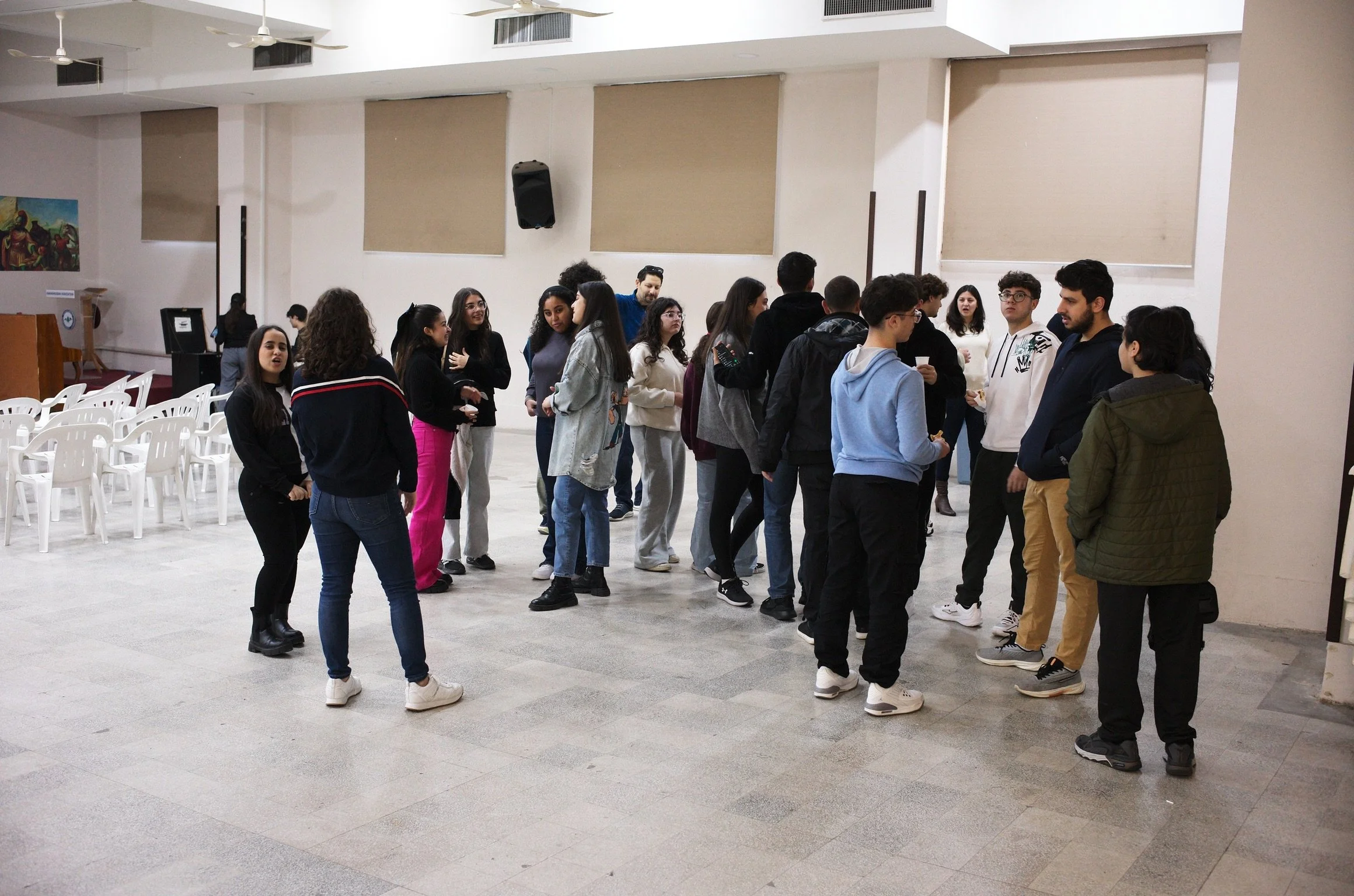MECC Continues the “Youth Leadership Building” Program in Lebanon
The Theological and Ecumenical Department Contributes in Empowering and Supporting Youth for a More Prosperous Future!
Click Here to Check All the Photos.
Believing in the importance of the role of youth in building healthy societies, the Middle East Council of Churches (MECC), Theological and Ecumenical Department, continues the “Youth Leadership Building” program in Lebanon. It implemented a new training within this program as part of an ongoing process to support, empower youth and develop their capabilities. The training was held this February, in the Hassesian Hall of the Armenian Evangelical Nor Marash Church - Beirut. Noting that the program was organized in partnership with Kerk in Actie (KIA) organization, Bible Society, Youth for Christ (YFC), and Ithraa Center in Lebanon.
The training was attended by a group of young people and leaders from different Church Families, who participated in the previous Ecumenical leadership sessions. They were happy to meet together again and exchange conversations and developments in an atmosphere full of fraternity and familiarity, recalling the most prominent memories they had woven with each other. Hence, this program is important for strengthening the bonds of love between the participants and developing their skills in order to train them in service and leadership and thus build youth networks capable of making positive change in society.
The training began with an icebreaker game, followed by an Ecumenical Prayer full of faith and unity. It included Readings from the Book of Psalms and hymns from different Church traditions, emphasizing the importance of richness in diversity. Texts from the Holy Bible were also read in Arabic, Armenian, English and French with English translation to ensure inclusivity. In this context, the participants stressed the joy of unity in Prayer, embodying the one faith despite all differences.
Then, the first session was led by Hala Obeid Kassatly, and focused on understanding and managing our painful emotions—how they impact leadership, relationships, and personal growth. Through interactive activities like acting out emotions and the "Emotional Cup" exercise, participants gained deeper self-awareness and learned how to create supportive spaces for one another. The discussion was open and honest, with teens sharing their thoughts and experiences and asking questions about emotional expression and regulation.
After a lunch break and various games, the second session was led by Elie Heneine, and delved into Biblical perspectives on painful emotions. By exploring different characters from Scripture and their challenging emotional journeys, the group reflected on how emotions are part of God’s design and how leaders can navigate them with faith, wisdom and hope.
The session ended with a closing Prayer where participants expressed their gratitude for the new experiences and knowledge the program provided and expressed their desire to participate in similar leadership sessions in the future.

